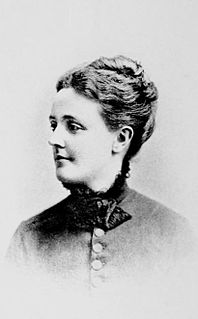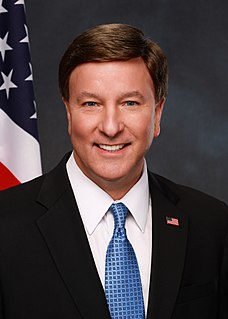A Quote by Abraham Lincoln
It may be affirmed, without extravagance, that the free institutions we enjoy, have developed the powers, and improved the condition, of our whole people, beyond any example in the world.
Related Quotes
Without undervaluing any other human agency, it may be safely affirmed that the Common School, improved and energized, as it can easily be, may become the most effective and benignant of all the forces of civilization. Two reasons sustain this position. In the first place, there is a universality in its operation, which can be affirmed of no other institution whatever... And, in the second place, the materials upon which it operates are so pliant and ductile as to be susceptible of assuming a greater variety of forms than any other earthly work of the Creator.
Local assemblies of the people constitute the strength of free nations. Municipal institutions are to liberty what primary schools are to science: they bring it within the people's reach, and teach them how to use and enjoy it. A nation may establish a system of free government, but without the spirit of municipal institutions it cannot have the spirit of liberty.
If any one faculty of our nature may be called more wonderful than the rest, I do think it is memory. There seems something more speakingly incomprehensible in the powers, the failures, the inequalities of memory, than in any other of our intelligences. The memory is sometimes so retentive, so serviceable, so obedient; at others, so bewildered and so weak; and at others again, so tyrannic, so beyond control! We are, to be sure, a miracle every way; but our powers of recollecting and of forgetting do seem peculiarly past finding out.
Just what is it that America stands for? If she stands for one thing more than another, it is for the sovereignty of self-governing people, and her example, her assistance, her encouragement, has thrilled two continents in this western world with all those fine impulses which have built up human liberty on sides of the water. She stands, therefore, as an example of independence, as an example of free institutions, and as an example of disinterested international action in the main tenets of justice.
Our institutions, if they do not erode entirely, can survive periods of decadence brought on by our material success, eras when the whole notion of civic militarism seems bothersome, and in which free speech is used to focus on our own imperfections without concern for the ghastly nature of our enemies.
A people may prefer a free government, but if by momentary discouragement or temporary panic, or a fit of enthusiasm for an individual, they can be induced to lay their liberties at the feet of even a great man, or trust him with powers to subvert their institutions, in all these cases they are unfit for liberty.
Free institutions are not the property of any majority. They do not confer upon majorities unlimited powers. The rights of the majority are limited rights. They are limited not only by the constitutional guarantees but by the moral principle implied in those guarantees. That principle is that men may not use the facilities of liberty to impair them. No man may invoke a right in order to destroy it.
The American continents, by the free and independent condition that they have assumed and maintain, are henceforth not to be considered as subjects for future colonisation byany European powers? In the wars of the Europeanpowers inmattersrelating to ourselves, we have never taken any part; nor does it comport with our policy to do so.
World conditions challenge us to look beyond the status quo for responses to the pain of our times. We look to powers within as well as powers without. A new, spiritually based social activism is beginning to assert itself. It stems not from hating what is wrong and trying to fight it, but from loving what could be and making the commitment to bring it forth.
Free from public debt, at peace with all the world, and with no complicated interests to consult in our intercourse with foreign powers, the present may be hailed as the epoch in our history the most favorable for the settlement of those principles in our domestic policy which shall be best calculated to give stability to our Republic and secure the blessings of freedom to our citizens.

































